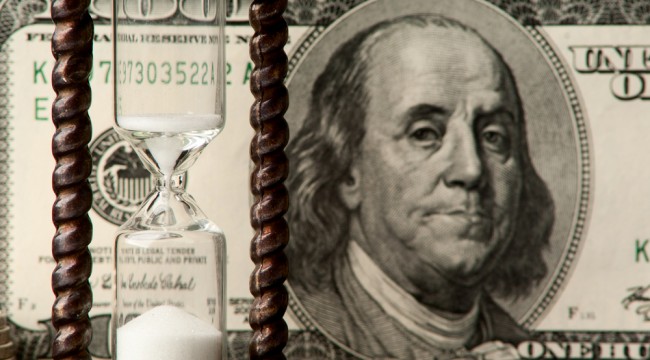Why the U.S. Is Not Experiencing "Raging Inflation"
In a recent article in the NY Times Op-Ed section, economist Paul Krugman points out that in the time it was most needed, economics failed. Let’s first start by defining economics. According to Webster, economics is:
A science concerned with the process or system by which goods and services are produced, sold, and bought
In my book, E$caping Oz, I derived four economic laws to help readers understand some basic truths about some of the things occurring in the economy. My fourth economic law says:
Economies are expressions of what people do. Participants in an economy act on their own selfish behalf in a manner that meets the satisfaction of others acting on their own behalf. The collective action of all these participants is what I call the Market, or the economy. So according to Krugman, the science of producing, selling, and purchasing goods and services failed us or the collective of the Market did.
According to Krugman:
Few economists saw the crisis coming — mainly, I’d argue, because few realized how fragile our deregulated financial system had become, and how vulnerable debt-burdened families were to a plunge in housing prices.
It really stretches the imagination that economists were unable to discern that any debt-burdened entity would somehow be immune to a drop in the price of the very thing that caused their debt. This sounds more like a failure of economists and not economics.
Continuing with the Op-Ed piece, Krugman postulates that our problems are the result of one simple reason.
We were suffering from inadequate demand.
If I understand him correctly, the demand stimulated by debt-burdened families was somehow inadequate during the boom years pre-2008. Now that the Market (individuals acting on their own behalf) wants a reprieve from debt accumulation, he suggests we have inadequate demand. He accurately states that the financial crisis caused people to want to spend less, which led to a decline in incomes and a depressed economy. Certainly that is the Market’s natural reaction to excessive debt accumulation.
Krugman’s next volley was directed at bankers, business leaders, and public officials. After the onset of the financial crisis, the federal government sought to cure the inadequate demand problem with a $700 billion stimulus bill. But those bankers, business leaders, and some public officials, insisted that such stimulus, and the huge budget deficits that followed, would lead to high interest rates and inflation. Krugman suggests economists knew better. Economists knew the world was awash in “excess savings” that needed a place to go – what better place to go than government coffers! Because they would go to government coffers, Krugman posits that interest rates and inflation would remain low.
Let’s examine these conclusions. First, interest rates are low because the Fed has kept the rate they control (discount rate) at levels that can best be described as knee-high to a grasshopper. Next, the Fed has been a huge buyer of government debt, which also contributes to keeping longer term interest rates low. If the world was somehow awash in excess savings, I guess Professor Krugman must have thought those excesses were going to come from the Fed. Ask people on fixed incomes, who relied on government bonds, about the Fed’s low interest rate policy. The Fed has now created a chase for yield and risk.
Remember the economic malaise in Greece? In April the Greek government floated a $4 billion bond offering at 4.75%. This is the country with officially reported unemployment of 25%. The low interest rate on the bond offer is astounding but perhaps not as much as the fact the offer was oversubscribed by seven times! Covenant-lite and leveraged loans have exceeded the peaks from 2007. Think about that for a moment. Investors are willing to assume more risk now than they were at the bubble peak of 2007.
One final point about “excess savings” flowing into government bonds. There is a certain amount of hubris in believing that the best place for excess savings should be the federal government. I have written before on the role of the federal government (Ch 6 and 7 in E$caping Oz). If excess savings get funneled to the government, then we are not really allowing the participants in the market to satisfy themselves by satisfying others (Economic Law #4 mentioned earlier). Government financing should come from tax revenue and not from excess savings. At best government is an inefficient transmission mechanism for directing money towards something the Market may actually want. At worst, it is not only an inefficient mechanism but a poor allocator of funds directed at things the Market does not want.
Now let me address his point about inflation resulting from all this extra government spending. Conventionally-speaking the extra government borrowing need not necessarily be inflationary. Inflation results from an increase in the money or credit in an economy. If the extra government financing came from excess savings, then no new money or credit was created since it already existed. If the government financing came from the Fed by way of monetization of debt, then it is inflationary. So you might ask, with all the Fed monetization of debt to the tune of trillions, why are we not in a raging inflation? Did the economists and Krugman actually get this one right? Not exactly.
The reason we are not in a raging inflationary environment is what happened pre-2008. For this I introduce another one of my economic laws.
The period from 1982 to 2007 can only be described as the greatest expansion of credit (inflation) in history. Once the credit expansion reaches a particular level (only decided by the participants in the market), credit expansion stops, collateral deflates in price and the previous confidence expressed by market participants evaporates. So the market post-2007 did exactly what it was supposed to do – deflate. The effect of inflation, rising prices, came to halt in financial assets, and the deflation process (a lack of confidence and a fall in prices) began in earnest. The monetary and governmental authorities recognized this, and began the counteroffensive of creating MORE credit to stave off the deflation. The results of their action includes massive increases in federal debt, and massive increases in financial assets owned by the Fed. Moreover, their actions have re-inflated financial assets and pushed investors towards riskier bets. Thus, the catharsis necessary in the economy never got a full chance to express itself.
Krugman continues by blaming a falling deficit in fiscal 2013 and lower discretionary spending for the country’s anemic economic growth. For Krugman, it is illogical to not rely on his brand of economics (higher deficits/more spending). I suppose the approximately $5.5 trillion in federal deficits from fiscal 2008 to 2012 was an insufficient number. Even if you add the reduced deficit for 2013 (north of $600 billion), the U.S. added over $6 trillion in 6 fiscal years. That begs the question – how much deficit spending is actually required to achieve Mr. Krugman’s desired growth?
I don’t know the answer to that question and I suspect Mr. Krugman does not either, and that is precisely the point. No one in academia or government can push buttons and pull levers to determine these things. Remember my Economic Law #4 – Markets allow people to satisfy themselves by satisfying others. People know their economic condition better than our Wizards. Cycles are a natural part of economies. Why? Because economies are comprised of humans and like it or not, humans behave cyclically. The Wizards can embellish a cycle and attempt to alter it, but they are unable to change human behavior in the long-term.
If economics failed, then the market’s participants, all of them, somehow failed to act in their own best interests for the benefit of others. I won’t be the one labeling millions of market participants as failures.
Regards,
Jim Mosquera
for The Daily Reckoning
Ed. Note: As was recently noted here at The Daily Reckoning, there is a tug of war going on between the forces of inflation and deflation. Who will win, no one really knows. But it should be fun to watch either way. And while you’re at it, you can pick up a few solid investment tips along the way. Sign up for The Daily Reckoning for FREE to find out how.





Comments: